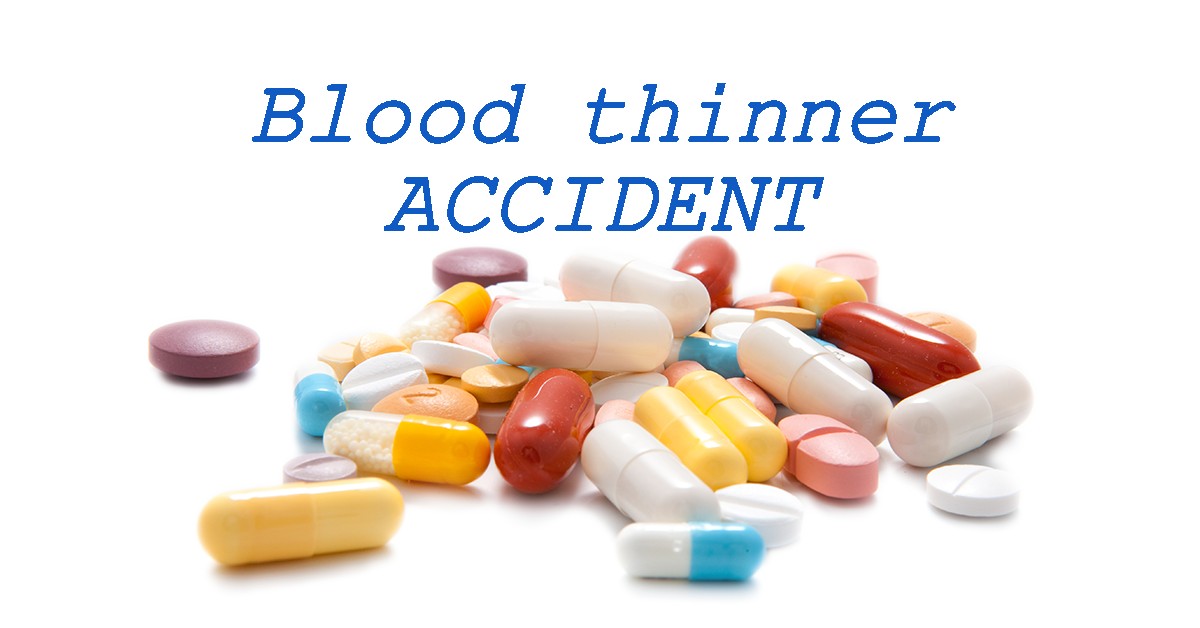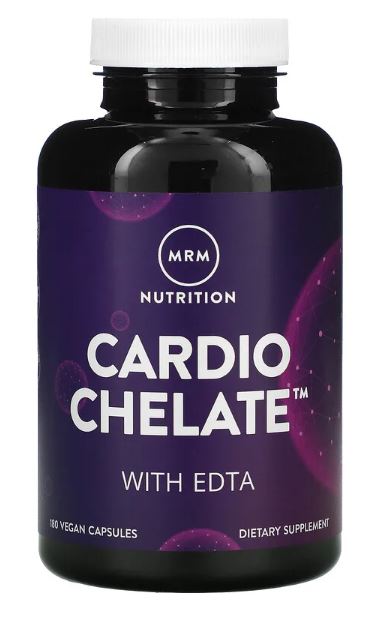Taking too much medication of any sort can lead to dangerous consequences, and is normally considered as a suicide attempt or accidental overdose. But with most medications, you have to take quite a handful of the medication to have a life-threatening or fatal effect. There are, however, a couple of medications that are much more dangerous to accidentally take too much of. Blood thinner medication is one of them. So what happens if you take more blood thinner medication than you should have?
After you finished reading, and if you are interested to see how food affects our blood condition you can check hematic food YouTube channel.
What happens if I/You accidentally took a double dose of blood thinners
Most people take their blood thinner medication at the same time once or twice a day. The importance of this schedule is because the effect of the blood thinner medication starts to wear off within a day. But one thing your doctor will stress to you continuously; never take a double dose to make up for a missed dose. Yes, it happens. You forget to take your pills and think that there will be no harm to take it along with your next dose. It’s like skipping a stop sign and then stopping twice at the next stop sign. You’ve missed your dose of blood thinner medication by accident, but it is never wise to take a double dose.
First we need to look at the two types of blood thinner medications to better understand the side effects of accidentally taking a double dose of blood thinners. First we have anticoagulants, which keeps your blood from clotting and turning into solid lumps of cells. The other type of blood thinner medication is called antiplatelets. The most well-known anticoagulants are Warfarin and Heparin, while the most well-known antiplatelets are Aspirin and Tirofiban.
Secondly we need to understand how blood thinner medication work. Contrary to its name, blood thinners doesn’t actually make your blood thinner. It also does not break up clots. It does however keep the blood from forming new clots.
So now you’ve accidentally taken a double dose of blood thinners. What do you do? You seek immediate medical help! By taking too much blood thinner medication you stand the risk of major or fatal bleeding and haemorrhaging. If you should cut yourself, you will also bleed profusely and much more than an average person would. You will already bleed more than an average person when you cut yourself, so after taking a double dose, you literally double the chance of severe complications. Even on your normal dose you are at a higher risk of injury than the normal population. A simple bump on the head or a fall can cause abnormal bleeding. That is why it is smart to have your doctor on speed dial, and to make sure you know the fastest route to your nearest hospital. Check out also blood thinner lawsuits, you may find it interesting.
How long does blood thinners stay in your system?
There are many factors to take into consideration to determine how long blood thinners stay in your system. These may be dependent on dietary factors, other medications that you are using, and your liver function. If your blood levels are within the therapeutic range, then the effects should be gone within three to four days after ceasing the use of blood thinner medication. Again the two different types of blood thinners come into play. Anticoagulants interferes with the normal clotting factors circulating the body. They are also more aggressive in the sense that they actually do make the blood “thinner”. Antiplatelets work by interfering with the chemical signal that the body sends out when it needs to form a clot. Under normal circumstances the signal would activate platelets, where it would gather at the site of bleeding and start to gather and clot.
Since there are two different types of blood thinners, the time it takes to leave your body differs as well. For people who are on regular anticoagulant blood thinners, they will be required to stop taking the medication at least 24 hours prior to the surgery, but optimally a week prior to surgery. Then there is also the factor of what type of medication you are using. Some of the anticoagulant blood thinner medication can stay in your system for up to 4 days, while other short-acting medications can leave your body within 24 hours. The type of blood thinner medication is determined by your doctor and the condition you are living with. If you do go into surgery, it is the post-operative care that matters when it comes to blood thinner medication. A specific in-hospital blood thinner will be given to you to prevent blood clots from forming in the legs, called deep vein thrombosis. But yet again, this is dependent on the type of surgery you had, and whether a blood thinner is the best option for you, even if you were on blood thinners prior to your surgery.
Another factor that comes into play is how much your blood is clotting, which can be determined through a blood test. These can either be requested by your doctor to determine whether you need any blood thinner medications, or it is ordered prior to a surgery, as well as following a surgery. The three types of blood tests are called Prothrombin Time, Partial Thromboplastin Time, and International Normalized Ratio. They are often ordered together, as they are referred to as clotting studies. Your use of blood thinner medication will have an effect on these tests, and yet again your use of certain blood thinner medication will affect the outcome of these tests differently.
If you think about patients who use Warfarin versus a patient who uses Aspirin, you would think that the difference in time that it stays in the body would differ greatly, you would be both right and wrong. While the two medications are different blood thinner medications, it should be taken into consideration that Warfarin comes in many different strength types. So a low dosage would take the same time to leave the body as Aspirin would.
What is a coagulant?
As per the dictionary, a coagulant is “a substance that causes blood or another liquid to coagulate.” A coagulant is an inorganic or organic substance which initiates or aids a congealing process, or the process of becoming viscous or thickened. Coagulation takes place everywhere in nature. From our blood to water and milk. This is why water or milk is often used in classrooms to demonstrate the process of coagulation of blood. It is an important part of the human bodily function, as it protects the body from simply bleeding out. When you cut yourself, you will bleed at first. But as you put pressure on the wound you will notice how the bleeding starts to halt and congeal at the site of the wound.
This is a perfect example of coagulation. Many case studies have been done to measure the time of coagulation in different patients. Medical case studies studied how long it takes for blood to coagulate at a site of a minor injury in patients who have shown normal coagulation factors through their blood works, as well as with patients who have been on blood thinner medication. This gave them a clear indication of what complications they may face with blood thinner medication in the medical field, as well as how they could use coagulants and anti-coagulants during treatments and surgeries.
Coagulant drugs
There are no medications available to make your blood thicker, but the use of Vitamin K helps your blood to thicken. This is why diet is so important, as it directly affects every part of your body. From your intake of Vitamin K to the ever-popular Vitamin C; they all have an effect on your body. Too much of any type of Vitamin can have adverse effects on your body.
As far as anti-coagulant drugs go, there is a long list of which you may recognise a few. This list includes Heparin, Warfarin, Xarelto, Pradaxa, Eliquis, Savaysa, Lovenox, and Arixtra. Then there is the second list which is the common antiplatelets medication, which includes Plavix, Brilinta, Effient, Aspirin, Ticlid, and Integrilin. Any of these medications may be prescribed to you for a myriad of reasons, be it as a post-operative medication, or if you have heart disease, problems with blood circulation, an abnormal heartbeat, or a congenital heart defect. It is normally also prescribed if you’ve had a heart valve surgery. All of these medications can interact with other medications and vitamins that you may be taking, which is why it is always important to inform your doctor of other medications and vitamins you are taking.
Anti-coagulant and anti-platelet medications, as with any other medication, can have side effects. Some of these side effects include increased bruising, red or pink coloured urine, unusually heavy menstrual bleeding, purple toes, and changes in your core temperature. These are also symptoms you can look out for if you have accidentally taken a double dose of blood thinners, and have opted to not go to the doctor. Any of these symptoms may warrant an urgent visit to your doctor or the emergency ward. Remember to always take along any and all medications that you are taking, as you might be required to continue taking some of it, while others need to be scrapped from the list until a safe alternative is found. Especially with blood thinner medication. The doctor will probably run a couple of blood tests to determine the strength of the blood thinner medication that you need to take, as you may have taken too high a dose due to the strength of the blood thinner medication, and by no fault of your own.
So be ready for a lot of jabs if you are on blood thinner medication, as your doctor will continuously check your blood viscosity. This is to make sure that your dosage is correct, and to avoid blood thinner accidents.
In some cases Natural blood thinners can be more helpful. If you are interested to find out how some of the food impacting our blood condition refer to our Natural Blood Thinners post for the videos.

